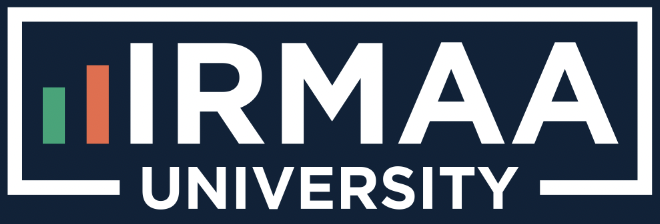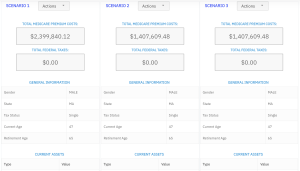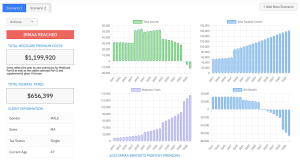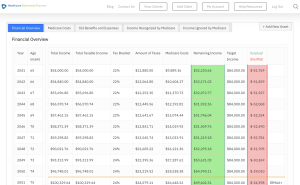Medicare number service:1-800-MEDICARE
Social Security call services:1-800-772-1213
Navigating Medicare can be intimidating, but the Medicare phone number provides access to knowledgeable experts who are available to answer questions about coverage, benefits, and enrollment. That’s where the Medicare phone number comes into play.
This essential lifeline connects you directly with experts who are ready and willing to assist with your queries about coverage, benefits, enrollment procedures, and more.
The key is knowing how and when to use this valuable resource effectively. Understanding what each part of Medicare covers can save time on calls or prevent unnecessary ones altogether.
Remembering that using the right contact – such as a specific Medicare phone number, could mean quicker resolution of issues or faster access to needed information will make navigating healthcare less stressful.
Contacting Medicare Services Offices
To effectively navigate these complexities while providing accurate advice about healthcare options during your client’s retirement planning discussions requires access to reliable resources.
In many cases, you may need direct contact via phone calls using either the Medicare number service at 1-800-MEDICARE or the social security call services at 1-800-772-1213. These numbers will connect you directly with representatives equipped to assist you in addressing detailed queries related specifically to your client’s situation.
In addition, online resources from official websites offer comprehensive information about various aspects of Medicare coverage which could prove beneficial when discussing plans involving Medicaid services offices regarding dual eligibility or other related concerns.
For instance, Social Security’s website provides extensive details regarding eligibility requirements and enrollment procedures, whereas the Centers for Medicaid & Medicare Services offer insights into policy changes impacting benefits under different parts of the program.
This knowledge, coupled with the ability to reach out directly, allows us better coordination between state Medicaid offices, offering valuable insights on how Medicaid interacts seamlessly alongside existing Medicare coverage options, ensuring the best possible outcome for our clients’ future needs.
Key Takeaway:
Understanding Medicare’s intricate system, including its various parts and supplemental policies like Medigap, is crucial for financial professionals guiding clients through retirement healthcare options. The ability to contact Medicare services directly via phone or online resources can provide valuable insights into policy changes and eligibility requirements, ultimately ensuring the best possible outcome for your client’s future needs.
The ABCs of Medicare: Understanding Part A and Part B
As a financial professional, understanding the intricacies of Medicare is crucial. Let’s start with the basics – Part A and Part B.
Medicare Part A, or hospital insurance as it’s commonly known, primarily covers inpatient care at hospitals including critical access hospitals and skilled nursing facilities (excluding long-term or custodial care). It also assists with hospice care coverage along with certain home health services.
In contrast to this is Medicare Part B, which provides cover for outpatient services like doctor visits. Additionally, it caters to other medical needs that aren’t covered by Part A such as physical therapy or durable medical equipment.
Navigating Through The Enrollment Process
To enroll in these parts of Medicare, you must meet specific eligibility requirements. Generally speaking, U.S. citizens who are 65 years old qualify for enrollment under Parts A & B. However, younger individuals can also be eligible if they have particular disabilities.
If you’re already receiving benefits from Social Security or RRB, your enrollment will be automatic when turning 65. For those not yet receiving benefits from Social Security, you should apply four months before turning 65 either online through the Social Security website or by visiting their local office personally.
- Note that there’s an initial seven-month window starting three months prior to your birthday month until three months after where beneficiaries can sign up without penalties.
- If you missed this opportunity, then the general enrollment period starts January 1st through March 31 each year, but late enrollees might face lifetime penalties, so ensure timely action on enrolling into Medicare plans.
Remember that Medicaid interacts differently with various aspects of Medicare coverage options depending upon individual state policies about dual eligibility among other factors. Therefore, always check specifics regarding coordination between both programs while planning retirement healthcare strategies.
Key Takeaway:
Get a grip on Medicare’s ABCs – Part A covers hospital stays, while Part B caters to outpatient services. Enrollment is automatic at 65 if you’re receiving Social Security or RRB benefits; otherwise, apply four months prior. Missed the initial enrollment window? Sign up between January and March but beware of lifetime penalties for latecomers. Always double
The Advantages of Medicare Advantage
Medicare Advantage, often referred to as Part C, is a comprehensive health plan offered by private insurers. This unique package rolls the benefits of Original Medicare (Parts A and B) into one unified policy.
A key benefit that sets these plans apart from original Medicare coverage is their ability to offer additional services not typically covered under Parts A and B, such as vision care, hearing aids, or even wellness programs like gym memberships.
Beyond this broadened scope of coverage, many beneficiaries appreciate the convenience factor associated with having all healthcare needs managed under one umbrella rather than managing multiple insurance policies separately.
Contacting Your Plan Provider
To contact your Medicare Advantage plan provider, ensure you have the customer service line details available on your insurance card or via an online search. Each insurer has a distinct support line which should be simple to locate on your insurance card or with an internet search of the provider’s website.
Prior preparation before making this call can streamline communication. Keep relevant information readily available, such as your policy number, along with specific questions about your coverage details. Also, keep track of changes in medical conditions or medications since these could impact what services are currently covered under your existing plan.
- Navigating Policy Options:
- To explore more detailed information about various providers’ offerings and compare them based on factors like cost-effectiveness and breadth of coverage, consider using resources like Medicare’s official Plan Compare tool.
- Maintaining Open Communication:
- Your relationship doesn’t end after choosing a provider; maintaining open lines for future inquiries ensures optimal utilization from chosen health plans. Remember: The right Medicare phone number can lead towards better understanding and efficient use.
Key Takeaway:
Medicare Advantage, or Part C, combines Parts A and B into one policy with added benefits like vision care and gym memberships. Contacting your provider requires preparation; have your policy number ready along with specific queries about coverage. Use Medicare’s Plan Compare tool to evaluate different providers’ offerings and keep communication lines open for future inquiries.
Understanding Medicare: Phone Number and Contact Guide
Learn about coverage, benefits, and how to use the Medicare phone number for queries. Your guide to better healthcare is here.
Reaching Out to Medicare: Phone Numbers and More
The labyrinth of Medicare coverage can be overwhelming. To help navigate it, the main Medicare phone number service is 1-800-MEDICARE (1-800-633-4227). This hotline offers round-the-clock assistance.
If your client needs more specific information or has queries that aren’t covered by this general line, you can find a wealth of resources on Medicare’s official website.
Lost Your Card? Here’s What To Do
In such situations, contacting Social Security immediately should be prioritized. Social Security can be contacted via their local office or by calling 1-877-486-2048, enabling prompt action for the replacement of lost cards.
Prompt action ensures replacement cards are issued swiftly and securely. Meanwhile, monitoring any suspicious activity on accounts associated with the lost card until its replacement arrives is crucial.
Beyond these measures, advising clients about safe handling of sensitive documents like their Medicare card helps prevent future mishaps.
Understanding Medicare: Phone Number and Contact Guide
Learn about coverage, benefits, and how to use the Medicare phone number for queries. Your guide to better healthcare is here.
Communicating With Medicaid Services Offices
The intricate connection between Medicare and Medicaid is a crucial aspect for financial professionals to comprehend. These two programs intertwine, providing extensive healthcare coverage for those who qualify.
Medicaid, in contrast with Medicare, operates at the state level. Each state maintains its own set of regulations regarding eligibility and benefits. Hence, direct communication with your local Medicaid services offices becomes vital when dealing with dual eligibility or related issues.
Finding Your Local Office
To locate contact information for your respective Medicaid office, you can utilize online resources that provide updated details based on location. Many states offer not only phone numbers but also email addresses or digital portals where inquiries about Medicare number service lines can be submitted electronically.
This access proves particularly beneficial if there are specific questions about how certain elements of a client’s retirement plan might interact with their potential Medicaid benefits.
Dual Eligibility: A Closer Look
Dual eligibility pertains to individuals qualifying both under Medicare and Medicaid services. For these clients, coordinating advantages from both programs plays an integral role in managing their healthcare expenses during retirement years. The Centers for Medicare & Medicaid Services (CMS) offers guidance on navigating this complex process through their website dedicated to coordination efforts.
Contacting CMS Directly
In scenarios requiring more hands-on assistance understanding the intersectionality of these two programs within unique case situations may necessitate contacting CMS directly. The main Medicare phone number line at 1-877-CMS(267)-232 provides immediate access to representatives specializing in assisting professionals like yourself navigate effectively through such complexities.
Key Takeaway:
Getting a handle on Medicare and Medicaid can feel like juggling hot potatoes, but fear not. Your local Medicaid office is your go-to for dual eligibility queries. If you’re still in a pickle, dial 1-877-CMS(267)-232 to chat with the pros at CMS.
FAQs in Relation to Medicare Phone Number
What is the best number to call about Medicare benefits?
The primary contact for general Medicare inquiries is 1-800-MEDICARE (1-800-633-4227).
Is there a Medicare phone number?
Yes, you can reach out to Medicare by dialing their main service line at 1-800-MEDICARE (1-800-633-4227).
How do you qualify to get $144 back from Medicare?
To potentially receive a refund, ensure your income-related monthly adjustment amount (IRMAA) has been correctly calculated. If incorrect, file form SSA–44 with Social Security.
Should you give your Medicare number over the phone?
No, avoid sharing your Medicare number over the phone unless it’s with trusted healthcare providers or authorized representatives.
Table of Contents:
- Navigating Medicare: A Comprehensive Guide for Financial Professionals
- The ABCs of Medicare: Understanding Part A and Part B
- The Advantages of Medicare Advantage
- Understanding Medicare Part D: Prescription Drug Coverage
- Bridging the Gap with Medigap
- Understanding Medicare: Phone Number and Contact Guide
- Veteran Benefits And Railroad Retirement Board Benefits
- Understanding Medicare: Phone Number and Contact Guide
- Communicating With Medicaid Services Offices
- FAQs in Relation to Medicare Phone Number
- Conclusion
Streamlining the Medicare Surcharge Calculation Process.
Our Healthcare Retirement Planner software is designed to streamline the retirement planning process for financial professionals. By providing an efficient way to calculate IRMAA costs, our tool helps you save time and focus on other aspects of your clients’ retirement plans.
- Faster calculations: Our software quickly calculates IRMAA costs based on your client’s income and tax filing status, eliminating manual calculations and potential errors.
- User-friendly interface: The intuitive design of our platform makes it easy for financial professionals to input data and generate results with minimal effort.
- Data integration: Seamlessly integrate our calculator into your existing financial planning tools or CRM systems for a more streamlined workflow.
- Easy to Understand Reports: Export reports to easily share with your clients
- Tax and Surcharge Modeling: see how different types of income affects both taxes and your surcharges.
In addition to simplifying the calculation process, using our Healthcare Retirement Planner can also help improve communication between you and your clients. With clear visuals that illustrate how IRMAA costs impact their overall retirement plan, you can effectively convey complex information in an easily digestible format. This enables clients to make informed decisions about their healthcare expenses during retirement while ensuring they are prepared for any potential changes in Medicare premiums due to income fluctuations. To learn more about how our software can benefit both you as a financial professional and your clients’ retirement planning experience, visit the features page. Streamlining retirement planning processes can help financial professionals save time and resources, allowing them to focus on other areas of their clients’ needs. Automated calculation of IRMAA costs is the next step in streamlining this process even further.





